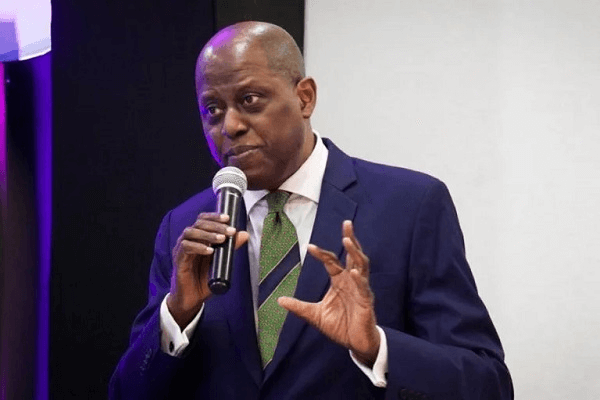The Governor of the Central Bank of Nigeria, Olayemi Cardoso, has said that the apex bank does not have a magic wand to stabilise the Naira against other currencies, especially the Dollar.
The Governor of the apex bank said this on Friday in Abuja amid the steady decline in the value of the Naira.
He spoke during a meeting of the Economic Team with the Senate Committees on Finance, Appropriations, Banking, Insurance and Other Financial Institutions
Cardoso said: “The Nigerian foreign exchange market is currently facing increased demand pressures, causing a continuous decline in the value of the naira.

- I now know why Gov. Uba has been praising Tinubu — El-Rufai
- Surviving abroad marriage: My observations, by Tunde Asaju
- Why I dumped PDP – Nwoko; We won’t miss him — Commissioner
- Anambra: Three siblings killed, bodies dumped in deep freezer
- Telecom Tariff Hike: NLC suspends planned nationwide protest
“Factors contributing to this situation include speculative forex demand, inadequate forex supply increased capital outflows, and excess liquidity.
“To address exchange rate volatility, a comprehensive strategy has been initiated to enhance liquidity in the FX markets.
“This includes unifying FX market segments, clearing outstanding FX obligations, introducing new operational mechanisms for BDCs and IMTOs, enforcing the Net Open Position limit, Open Market Operations and adjusting the remunerable Standing Deposit Facility cap among others.
“Our measures aimed at improving USD supply into the Nigerian economy, have significant potential in taming the volatility of the exchange rates.
“However, for these measures to be sustainable, we must as a country, moderate our demand for FX.
“It is also clear that the task of stabilising the exchange rate, while an official mandate of the CBN, would necessitate efforts beyond the bank itself.
“It will also include actions by corporates and individuals to reduce our frequent demand for the dollar for business and personal needs.”
On the inflation rate, Cardoso said: “Distinguished Senators, inflationary pressures are expected to decline in 2024 due to the CBN’s inflation-targeting policy, aiming to rein in inflation to 21.4 percent in the medium term, aided by improved agricultural productivity and easing global supply chain pressures.”


